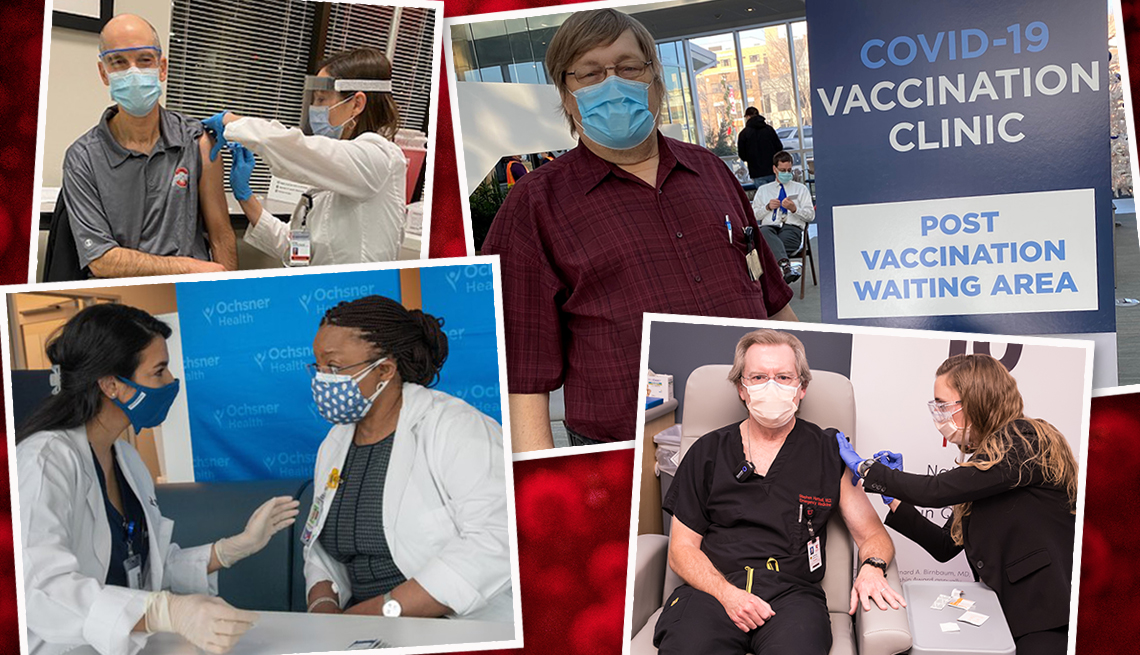
Older adults share their covid-19 vaccine stories
- Select a language for the TTS:
- UK English Female
- UK English Male
- US English Female
- US English Male
- Australian Female
- Australian Male
- Language selected: (auto detect) - EN
Play all audios:

Some spoke of after-the-fact soreness in the arm but said it was no worse than a flu shot and better than a tetanus shot. Randi Schaeffer, 66, couldn't say whether the vaccination made
her tired, since as interim vice president of nursing at North Dakota's Sanford Bismarck Medical Center she is exhausted from working up to 12 hours a day. Luti Kashimawo, 57, the
section head and medical director of the pediatric intensive care unit at Ochsner Hospital for Children in New Orleans, woke up the next morning with a slight headache and minor body aches
but “took a Tylenol, took my warm shower, and I was good to go.” And James Allen, a 62-year-old pulmonary care critical doctor at Ohio State University Wexner Medical Center in Columbus,
actually wished he'd had more side effects beyond his sore arm. Side effects result from an activated immune system, he explained, and “are a sign that the vaccine is doing what
it's supposed to do.” Allen wants to alleviate concerns about the COVID vaccines being distributed across the nation, and he's not alone. "There's a lot of really smart,
thoughtful, rigorous work that was done to move these vaccines forward,” said Trish Kritek, 50, a pulmonary and critical care physician at University of Washington Medical Center in Seattle,
where she's been working in the COVID intensive care unit. “I know that people are anxious about it feeling fast, but the science that is being used for these vaccines has been
something that people have been working on for decades.” At the same time, many health care workers who got the first shots warn that the end of COVID isn't here yet. First, enough
people need to get vaccinated for it to make a significant difference, which will take time. And it's not yet clear if someone who receives the vaccine will be immune from contracting
an asymptomatic case that could be transmitted to others. For all of these reasons, the CDC and the vaccine recipients say it's still important to mask up, wash your hands, social
distance and maintain caution, especially as the numbers of cases, hospitalizations and deaths continue to grow. “I'm going to be very black-and-white here: We are still in a very
dangerous life-threatening pandemic.… Why would we let up on anything?” said Napolitano, of the University of Michigan. Her medical center sees “the sickest of the sick,” getting referrals
from across the state and elsewhere, like Ohio and Indiana, she said. She sees ICU beds full of COVID patients who are “right on the edge of death” and knows there's still a long way to
go.
